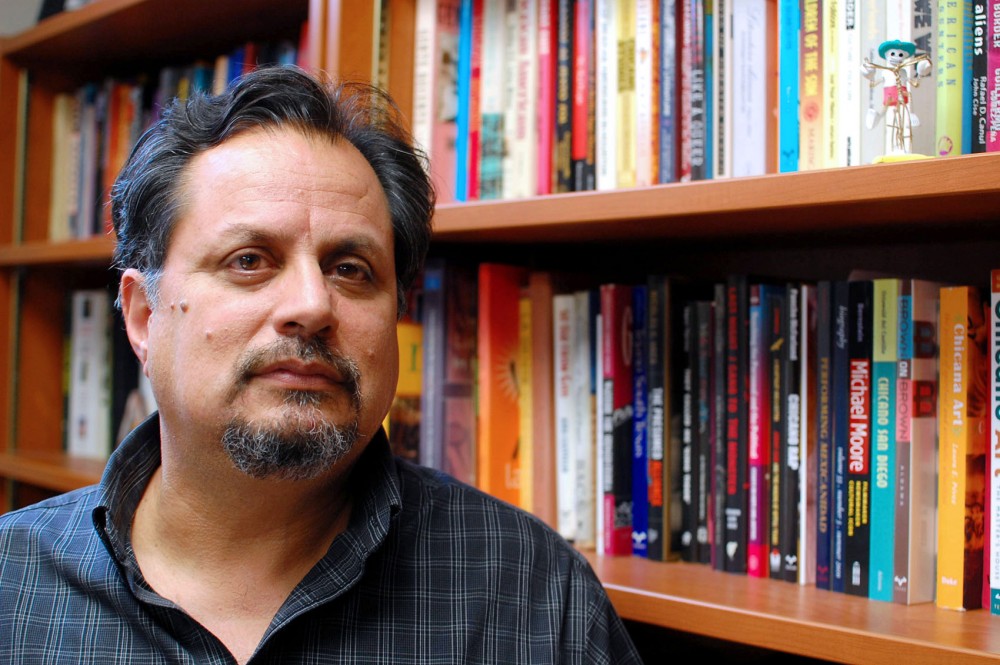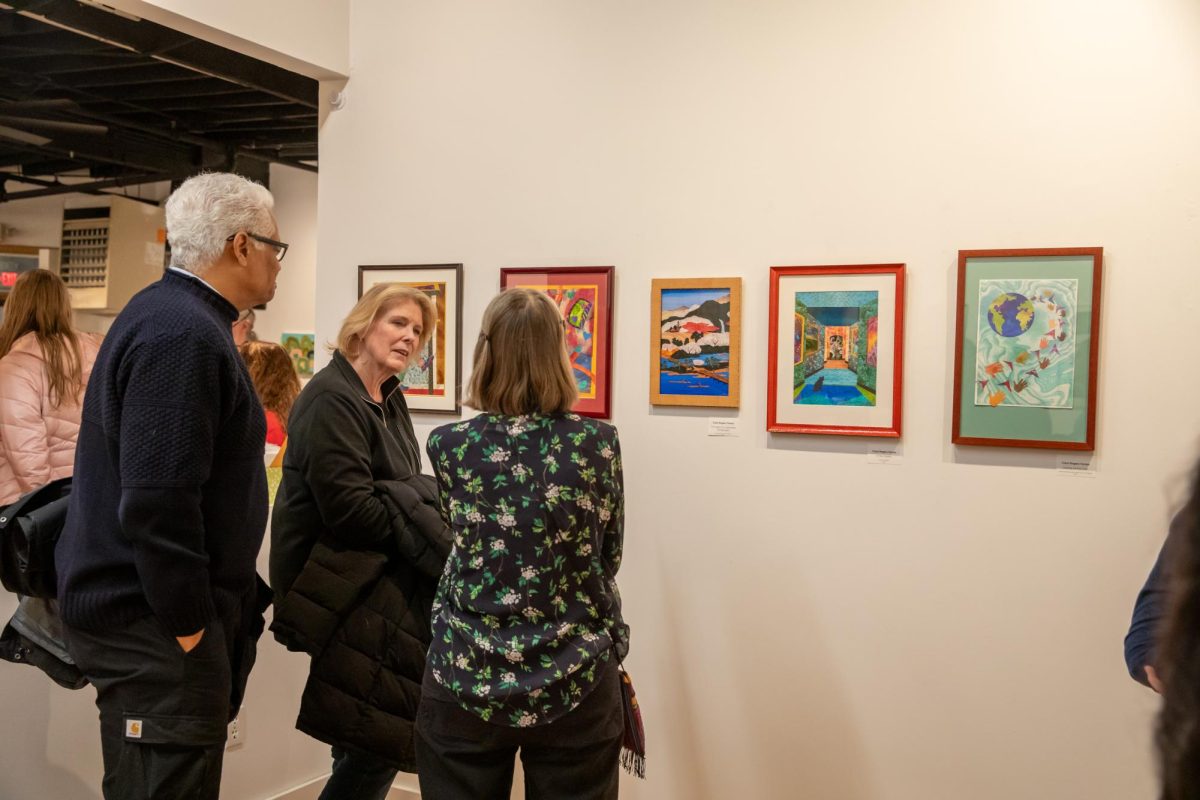What: Discussion of “A Journey Around Our America: A Memoir on Cycling, Immigration, and the Latinoization of the U.S.”
When: 4 p.m., Thursday
Where: Coffman Union Bookstore, 300 Washington Ave. SE, Minneapolis
Eight thousand miles make up the distance professor Louis Mendoza traveled without the speed or comfort of his car. Bicycling around the perimeter of the U.S., the professor sought a slow journey — 75 to 100 miles a day — from July through December 2007.
Throughout his memoir, “A Journey Around Our America,” Mendoza’s bike becomes a recurring image of his circular journey. His two-wheeled mode of transport also allowed face-to-face interaction with people he met in small towns across the U.S. outside of the insular confines of his “metal cocoon.”
“If I went by car,” Mendoza said, “I would just be driving from one destination to the next but not considering all that’s in between.”
The Chicano studies professor and the associate vice provost for equity and diversity documents his personal experience alongside the voices and perspectives of strangers he meets in “A Journey Around Our America.” The memoir also chronicles the continuing cycle of the hostile immigration debate — an especially timely issue at the beginning of his trip.
“It became a very controversial issue nationally,” Mendoza said. “It was getting a lot of media coverage. It was also very polarized — a lot of negative depictions of Latinos and a lot of negative depictions of the debate.”
Mendoza writes about the historical phases for the U.S.’ general treatment and view of immigrants, a revolving wheel of rejection and acceptance. Instead of joining the presidential debate or the pundits’ sensationalism, he wanted to document the voices and perspectives from the immigrants themselves — all from the seat of his bike.
“I felt like none of this was depicted, and you didn’t get a lot of voices of everyday folks,” Mendoza said. “I felt it was very important to try to get to the people themselves and listen to them.”
Mendoza borrows Cuban writer José MartÃ’s 1892 essay “Our America” in his memoir’s title and concept of the U.S. Martà suggests that embracing rather than denying the complex cultural background of the U.S. will lead to the country’s growth and success.
“The lesson we don’t learn from history is that immigrants make this country stronger,” Mendoza said. “It’s like we know that and we don’t know that.”
Through his bike trip, beginning in Minneapolis and circling the perimeter of the U.S.’ border, Mendoza discovered an outpouring of interest in his journey.
“Having left with a certain amount of cautiousness, I was surprised how friendly people were,” Mendoza said. “People were extraordinarily friendly in ways that I never would have anticipated.”
Mendoza’s cycling forced a deliberate pace that offered a chance to see into lives otherwise neglected. Strangers both in and out of the Latino community readily offered their insight, often aware of their specific town’s dependence on recent immigrants’ labor. The six-month journey also provided an opportunity for unpredictability — literal roadblocks filled the trip alongside the unplanned nature of his interviews.
“It would be easy to plan things and go to the big cities and identify major spokespeople in the cities,” Mendoza said, “but I thought, ‘What if I just talk to people in these small towns who I don’t know?’”****
“A Journey Around Our America” combines narrative, poetry and interviews to encapsulate an issue Americans often dehumanize, neglecting the ground-level stories and culture that makes up so much of the country. Mendoza asks the reader not to forget to understand immigration not only socially but historically.
“On some level it’s cyclical,” Mendoza said. “We have a short memory about that because we somehow like to put aside those moments in history where we disagree with one another.”














